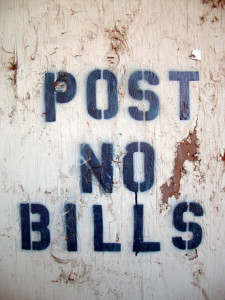December 23, 2015
 This Tuesday, the Federal Trade Commission (the “FTC” or “Commission”) issued an Enforcement Policy Statement on Deceptively Formatted Advertisements, explaining that certain “native” advertising formats in digital media may deceive consumers by blurring the distinction between advertising and non-commercial content.
This Tuesday, the Federal Trade Commission (the “FTC” or “Commission”) issued an Enforcement Policy Statement on Deceptively Formatted Advertisements, explaining that certain “native” advertising formats in digital media may deceive consumers by blurring the distinction between advertising and non-commercial content.
How will this FTC Policy Statement affect the native advertising industry?
Commission Takes Aim at Native Advertising
The FTC’s recent Policy Statement takes issue with certain native advertising formats and techniques that are closely integrated with and less distinguishable from regular content. Native advertising has become increasingly popular in recent years due to its success in capturing the attention and clicks of ad-avoiding consumers. According to the Commission, many native advertising campaigns may mislead reasonable consumers as to their nature or source, in violation of the deceptive advertising provisions of the FTC Act.
In evaluating whether a native advertisement’s format is misleading, the Commission will scrutinize the entire subject ad, examining such factors as:
- its overall appearance;
- its target audience;
- the similarity of its written, spoken or visual style to non-advertising content offered on a publisher’s site;
- the degree to which it is distinguishable from such other content;
- qualifiers it contains, such as disclosures to inform consumers of its commercial nature; and
- the particular circumstances in which it is disseminated, including customary expectations based on consumers’ prior experience with the media in which it appears.
The Commission stressed that misleadingly formatted advertisements will be deemed deceptive even if the product claims communicated are truthful and non-misleading.
Leslie Fair, Senior Attorney with the Commission’s Bureau of Consumer Protection, offered a rule of thumb with respect to native advertising: “If what looks to be an article, video, or game is really an ad – but it’s not readily identifiable to consumers as such – the FTC has another word for it: deceptive.”
Avoiding Deceptive Advertising Claims
Advertisers should take heed of the Commission’s recent Enforcement Policy Statement on Deceptively Formatted Advertisements. Native advertisers must ensure that their promotions are compliant with FTC regulations, or risk regulatory investigation and other legal action.
If you are interested in learning more about this topic or launching a native advertising campaign, please e-mail us at info@kleinmoynihan.com, or call us at (212) 246-0900.
The material contained herein is provided for informational purposes only and is not legal advice, nor is it a substitute for obtaining legal advice from an attorney. Each situation is unique, and you should not act or rely on any information contained herein without seeking the advice of an experienced attorney.
Attorney Advertising
Related Blog Posts:
Carrot Neurotechnology Settles Deceptive Advertising Claims with FTC
Gag Clauses in Terms and Conditions Have Marketer in FTC Crosshairs
FTC Lawsuit Accuses DirecTV of Deceptive Advertising, ROSCA Violations



